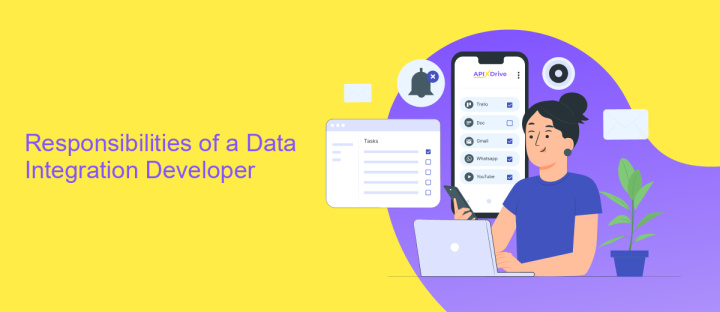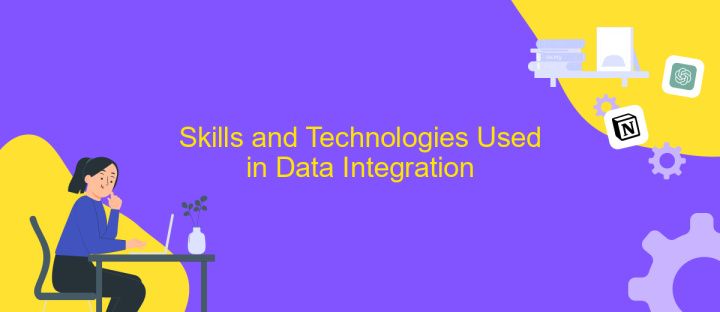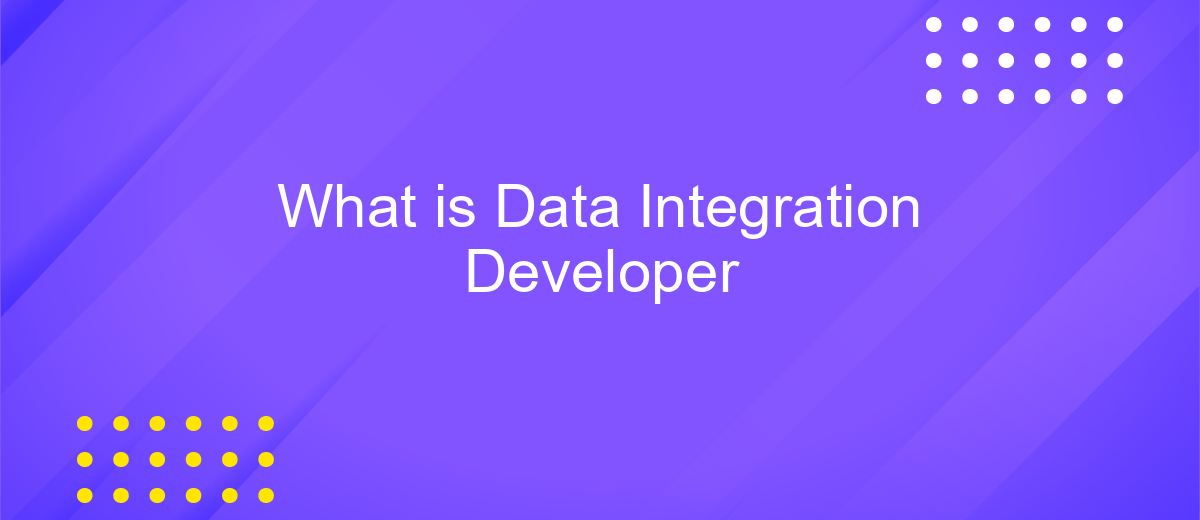What is Data Integration Developer
A Data Integration Developer plays a crucial role in today's data-driven world by ensuring seamless data flow across various systems and platforms. They design, implement, and manage solutions that consolidate data from diverse sources, enabling organizations to gain comprehensive insights and make informed decisions. By bridging gaps between disparate data sets, these professionals help businesses enhance efficiency, improve data quality, and drive strategic growth.
Introduction to Data Integration
Data integration is a critical process in today's data-driven world, enabling seamless connectivity and communication between disparate data sources. It involves combining data from various platforms and formats into a unified view, facilitating better analysis and decision-making. As organizations increasingly rely on diverse data systems, effective integration becomes essential to harness the full potential of their data assets.
- Consolidation of data from multiple sources
- Ensuring data consistency and quality
- Facilitating real-time data access and updates
- Supporting business intelligence and analytics
- Reducing redundancy and improving efficiency
Successful data integration strategies empower businesses to gain insights and maintain a competitive edge by leveraging comprehensive data analysis. With the growing complexity and volume of data, integration developers play a pivotal role in designing and implementing solutions that bridge data silos. By ensuring that data flows seamlessly across systems, they enable organizations to make informed decisions and optimize their operations. As technology evolves, the demand for skilled data integration professionals continues to rise, highlighting the importance of this field in the modern digital landscape.
Responsibilities of a Data Integration Developer

A Data Integration Developer is responsible for designing, implementing, and managing data integration solutions to ensure seamless data flow across various systems. Their primary duties include analyzing business requirements and translating them into technical specifications, developing integration processes, and ensuring data accuracy and consistency. They work closely with data architects and other IT professionals to integrate data from multiple sources, such as databases, APIs, and third-party applications, into a unified system. This role requires a deep understanding of data mapping, transformation, and cleansing techniques to enhance data quality and accessibility.
Additionally, a Data Integration Developer is tasked with monitoring and optimizing data integration processes to improve performance and efficiency. They utilize tools like ApiX-Drive to automate and streamline integrations, reducing manual effort and minimizing errors. The developer is also responsible for troubleshooting integration issues, providing technical support, and maintaining documentation for all integration processes. By leveraging their expertise in data integration, they enable organizations to make informed decisions based on accurate and timely data insights.
Skills and Technologies Used in Data Integration

Data integration developers play a crucial role in ensuring seamless data flow across various systems. They possess a unique blend of skills that enable them to manage and integrate disparate data sources efficiently. A strong foundation in programming languages such as SQL, Python, or Java is essential for writing scripts and queries that facilitate data transformation and migration. Familiarity with data modeling and database management is also important, as it allows developers to design and optimize data structures for integration.
- Proficiency in ETL tools like Apache Nifi, Talend, or Informatica to automate data extraction, transformation, and loading processes.
- Experience with data warehousing solutions such as Amazon Redshift or Snowflake for centralized data storage and analysis.
- Understanding of APIs and web services to enable seamless data exchange between applications.
- Knowledge of cloud platforms like AWS, Azure, or Google Cloud for scalable data integration solutions.
- Ability to work with big data technologies such as Hadoop or Spark for handling large datasets.
In addition to technical expertise, data integration developers must possess strong problem-solving skills to address data inconsistencies and integration challenges. Effective communication and collaboration with cross-functional teams are vital to ensure successful data integration projects that meet business objectives.
Career Path and Opportunities

A career as a Data Integration Developer offers a dynamic and rewarding path for those interested in data management and technology. As businesses increasingly rely on data-driven decision-making, the demand for skilled professionals in this field continues to grow. Data Integration Developers play a crucial role in ensuring seamless data flow across systems, which is vital for organizational efficiency and innovation.
Starting as a junior developer, individuals can advance to senior roles with experience and expertise. The career path may also lead to positions such as Data Architect, Data Engineer, or even managerial roles like Data Integration Manager. Continuous learning and staying updated with the latest technologies are essential for career growth in this domain.
- Junior Data Integration Developer
- Senior Data Integration Developer
- Data Architect
- Data Engineer
- Data Integration Manager
Opportunities in this field are vast and varied, spanning across industries such as finance, healthcare, retail, and more. With the rise of big data and cloud computing, Data Integration Developers are well-positioned to explore roles that focus on innovative solutions and strategic data utilization. This career not only offers technical challenges but also the chance to make a significant impact on business operations.


Future of Data Integration
The future of data integration is poised for significant transformation as organizations increasingly rely on seamless data flow to drive decision-making and innovation. With the advent of advanced technologies such as artificial intelligence and machine learning, data integration will become more intelligent and automated. These technologies will enable systems to predict integration needs, optimize data flow, and reduce human intervention, making data integration more efficient and less error-prone.
Moreover, the rise of cloud computing and SaaS applications is pushing the demand for flexible and scalable integration solutions. Platforms like ApiX-Drive are at the forefront of this evolution, offering tools that simplify the integration process by providing pre-built connectors and user-friendly interfaces. As businesses continue to adopt diverse applications, the ability to quickly and easily integrate these systems will be crucial. In the future, data integration will not only be about connecting systems but also about creating a cohesive ecosystem that supports real-time analytics and agile business operations.
FAQ
What is a Data Integration Developer?
What skills are necessary for a Data Integration Developer?
What are common tools used by Data Integration Developers?
How does a Data Integration Developer ensure data quality?
What challenges do Data Integration Developers face?
Time is the most valuable resource for business today. Almost half of it is wasted on routine tasks. Your employees are constantly forced to perform monotonous tasks that are difficult to classify as important and specialized. You can leave everything as it is by hiring additional employees, or you can automate most of the business processes using the ApiX-Drive online connector to get rid of unnecessary time and money expenses once and for all. The choice is yours!

